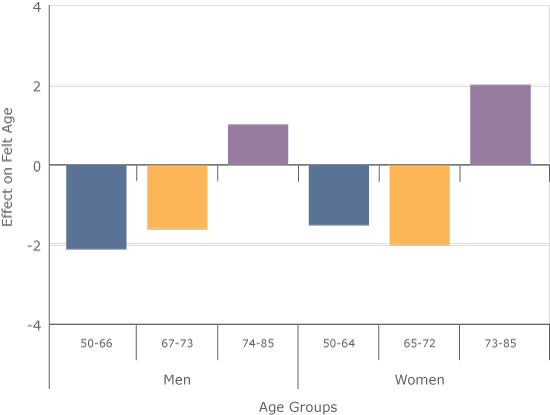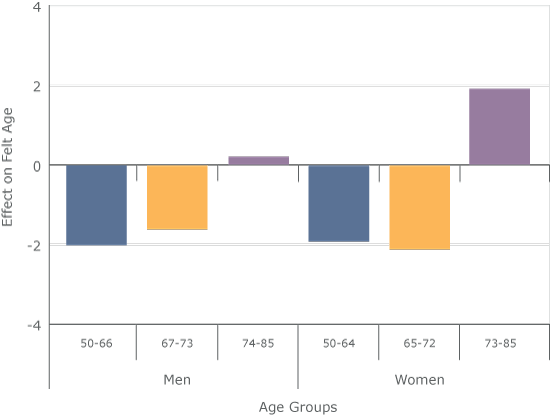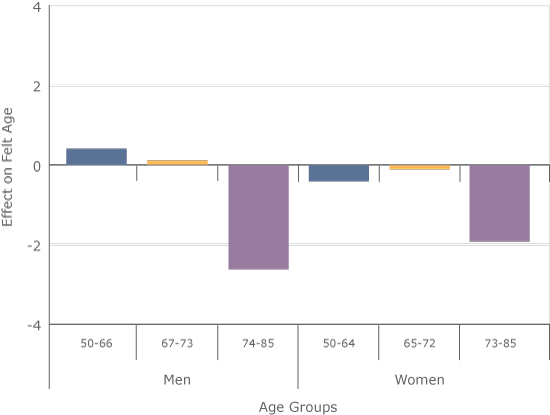Population ageing has recently boosted an extensive debate about how to measure individual aging. The chronological age, even if conventionally used, is somehow limited because it does not capture people’s own representation of aging, that is, how old people actually feel they are. In their study on the United States, Valeria Bordone and Bruno Arpino test the association between subjective age, as an alternative measure to chronological age, and two important social roles for older adults: having grandchildren and providing grandchild care. Their findings reveal that grandparenthood strongly shapes people’s own experience of ageing. The authors state that grandparents only feel older than people without grandchildren at younger ages. Later in life, if they take care of their grandchild, they start feeling younger again and declare a lower subjective age compared to their grandchildless counterparts.
The youthful effect
Authors found a clear negative effect (i.e., feeling younger) of not having grandchildren on people’s subjective age when their chronological age is under 74 years old (Figure 1). Both grandchildless men and women between 50-66 years old feel around two years younger than grandparents. In the following age group, the felt age decreases by 2 years for women and by 1.6 for men. Nevertheless, this situation reverses in later life: grandchildless women over 73 years old feel 2.1 years older than grandmothers of the same age.
Bordone and Arpino found that results are pretty much similar to those previously reported (Figure 1) when comparing people without grandchildren against grandparents who do not provide grandchild care (Figure 2). Instead, there are significant differences when comparing only grandparents but distinguishing between those who actively look after their grandchildren and those who do not (Figure 3).
The authors identify a youthful effect on subjective age in later life due to the care provided to grandchildren. Women over 73 years old feel 1.9 years younger than their grandmother counterparts who do not provide grandchild care. For men over 74, the effect is even larger: they feel 2.6 years younger. Bordone and Arpino explain these results by arguing that the active role of caregiver pushes grandparents to remain active and might have a meaningful signification giving them something to live for.

Figure 1. Estimated effects on felt age of not having versus having grandchildren, by gender and age group.

Figure 2. Estimated effects on felt age of not having grandchildren versus having grandchildren, but not providing grandchild care, by gender and age group.

Figure 3. Estimated effects on felt age of providing grandchild care versus having grandchildren, but not providing grandchild care, by gender and age group.
This Population Digest has been published with financial support from the Progress Programme of the European Union in the framework of the project “Supporting a Partnership for Enhancing Europe’s Capacity to Tackle Demographic and Societal Change”.